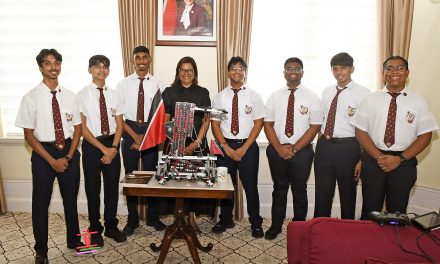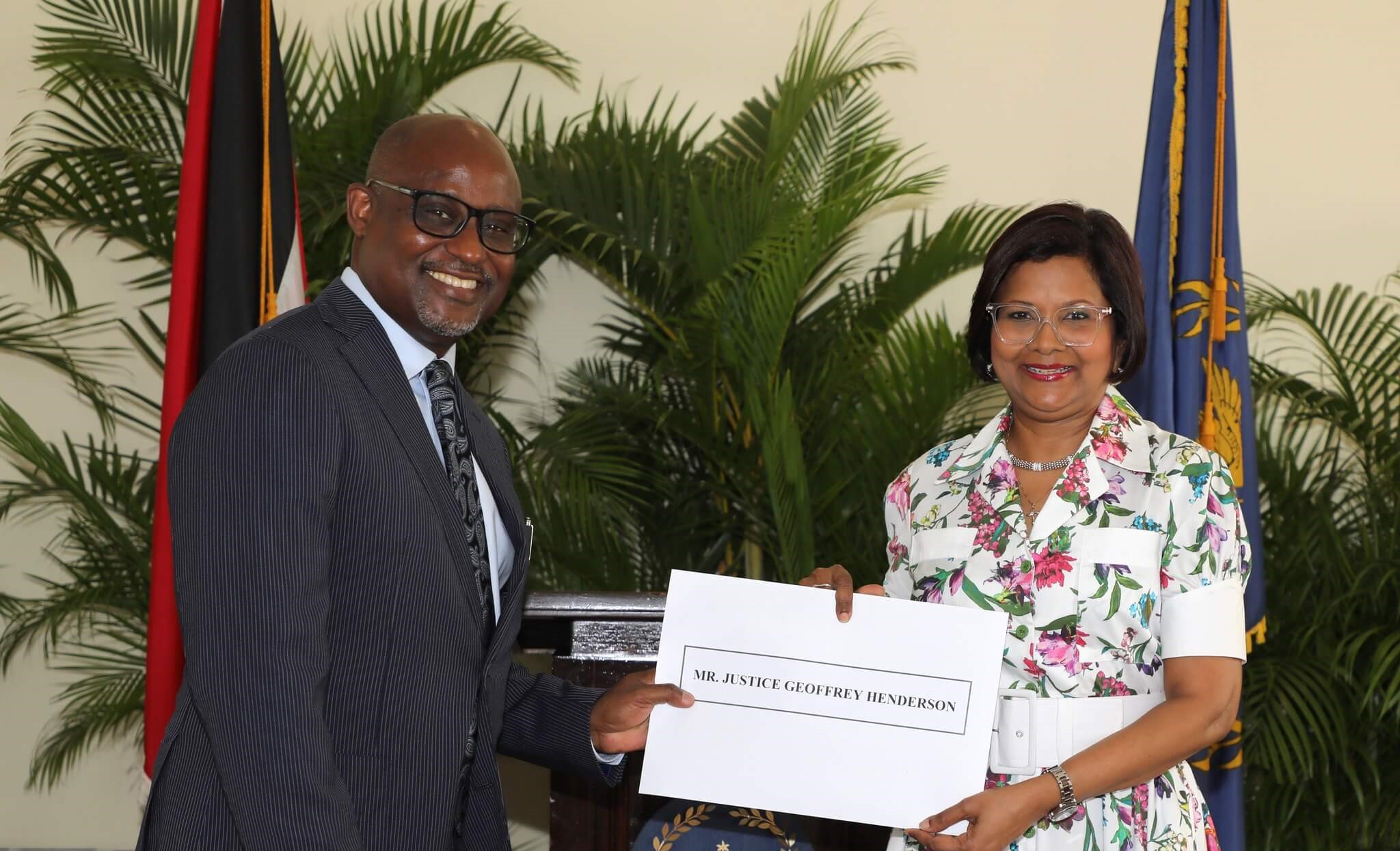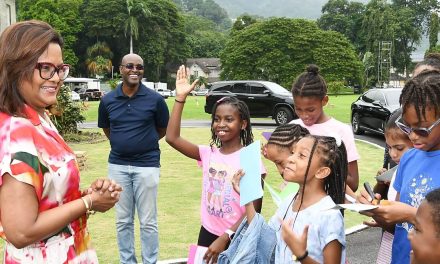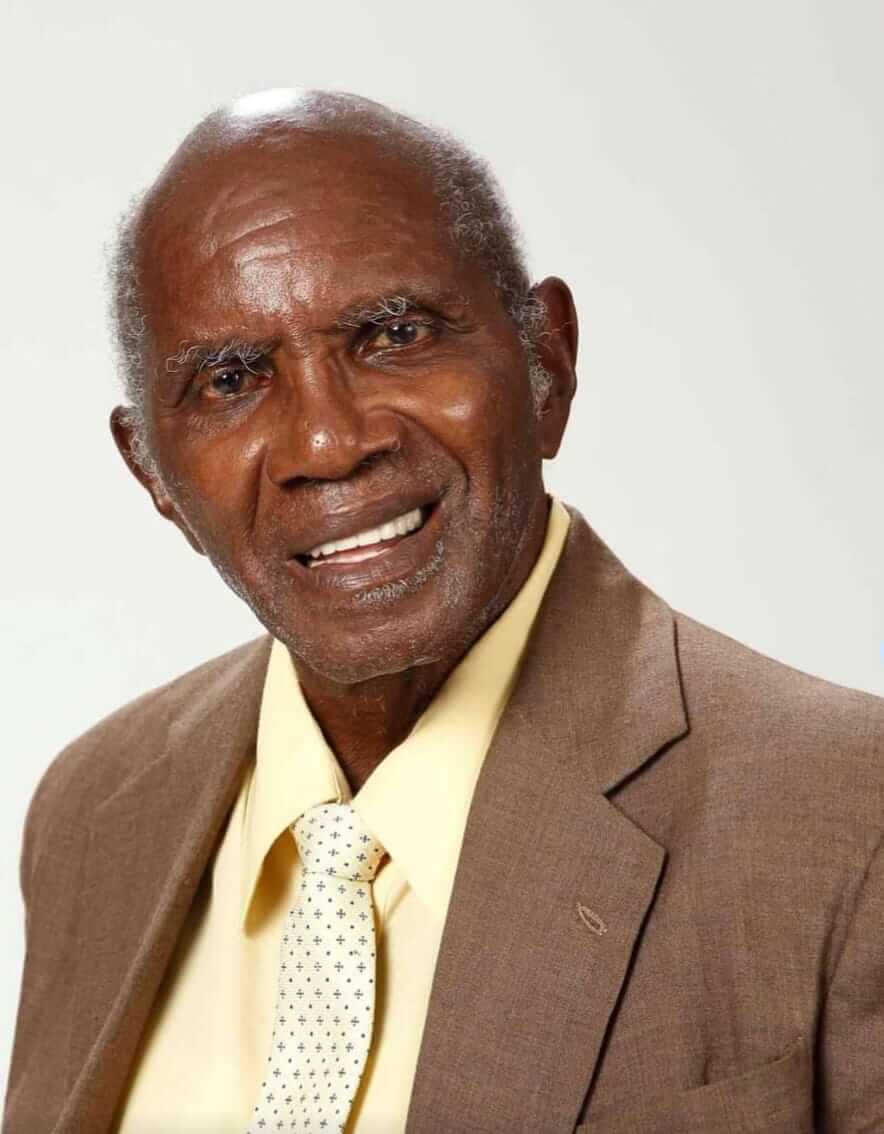Good evening.
It was without hesitation that I agreed to address this Gala Dinner in Her Excellency’s stead, under the theme Higher Education Quality and Workforce Development in the Caribbean: Issues, Challenges, Opportunities and Solutions.
Malcolm X had the view, that “Education is the passport to the future, for tomorrow belongs to those who prepare for it today.” It is in light of that statement that we must ensure that our passports are valid, up to date and up to standard, otherwise we risk being left behind in the forward march of progress. You would have spent today, and some of you, yesterday, presenting, considering and deliberating on the issues, challenges, opportunities and solutions facing Higher Education Quality and Workforce Development in the Caribbean. I am therefore delighted to join you as you unwind and reflect on these critical discussions and conversations.
Please don’t be afraid, I don’t intend to delve too deeply into any of these themes this evening, as I suspect you would prefer to take it easy after a long day of theorising and debating. However, education is everybody’s business and having benefitted from higher education, and having worked in public office for a number of years, I appreciate the importance of ensuring that our education apparatus is robust and able to adequately prepare and develop our citizens for the future.
With nineteen years of experience under its belt, the Caribbean Area Network for Quality Assurance in Tertiary Education (CANQATE) is well placed to produce the inventive ideas, proposals and solutions we need to overcome the ever-evolving issues and challenges facing us today. It is critical that our students and industries are outfitted with the appropriate skills and tools they need to take full advantage of the opportunities presented by the ongoing and rapidly developing change and transformation occurring in higher education and the workplace.
I thank the conference organisers and attendees for their herculean efforts to strengthen and promote the ability of Caribbean countries to maintain, evaluate and improve their higher education offerings and ensure that they are fit for purpose in our present and future realities. That countries from around the region can come together and learn from one another is not insignificant, especially in this our 50th year of CARICOM. It is my hope that this conference will make a dent in the themes and sub-themes around Higher Education Quality and Workforce Development, and arrive at concrete, workable solutions. Our students in higher education deserve no less. Our economies stand to reap the benefits.
According to UNESCO, higher education is a rich cultural and scientific asset which “equips students with the skills needed to meet ever changing labour markets.” Universities supply industries with knowledge, research and professional talent, and industries must keep universities abreast of their changing needs and requirements. This synergy is critical if we are to adequately manage the rapid transformation of the world of work as a result of several factors, some of which have been identified as sub-themes for this conference. New technologies, for example, artificial intelligence (AI); shifting employment patterns such as remote work and work from home; and the effect of climate change represent some such challenges that we must be prepared to address and overcome. As the job market changes and evolves, the skills gap between education and the workplace also widens. According to the World Economic Forum’s Future of Jobs Report 2023, with the current pace of technological change, employers estimate that in the next five years, 44% of workers skills will be disrupted. The jobs that exist today may not exist in five years.
What can we do to ensure that our students are prepared and trained for the workforce of the future? What are the resources and training required? What role do best practices play? I came across the following perspective from Indian author C. K. Prahalad on best practices, “It is advisable to follow not just best practices, but to develop next practices to blaze a trail and stay ahead of the pack!”
Our universities should be premier institutions at the cutting edge of global research and invention. Employers ought to know that they can trust that our students have been educated according to standard and in a quality environment. We want employers to be confident that they can find and hire workers who could maintain and boost their productivity and innovation.
Our educational offerings have to be modern and relevant and our educational institutions should encourage a culture of innovation, creativity and pushing the limits. A.I. presents a myriad of possibilities for progress and innovation in higher education. It also threatens job security and poses serious ethical questions about academic integrity. As in, should students and educators use A.I. tools in their studies and course preparation? What are the lines drawn between use for efficiency and cheating? Guidelines have to be developed. We cannot ignore AI—, ChatGPT and other programmes like it are here to stay. We have to ensure that our students, educators and policymakers are sufficiently equipped to navigate this brave new world and develop policies and protocols to use these programmes effectively and ethically to the benefit of the entire education system.
We don’t need to reinvent the wheel or throw the baby out with the bathwater. We have seen this happen post-Covid, where effective tools and strategies developed to learn and work during the time of social distancing were abandoned as soon as restrictions were lifted. With the pandemic now firmly in the rear-view mirror it is important that momentum is not lost as the best, most efficient ways to deliver courses and information are explored. Remote teaching, blended learning, and other innovative pedagogical practices may still hold value. Higher education institutions should be at the forefront of these progressive policies and practices associated with technology and online learning.
And what of climate change? Educational institutions should be pioneers of development and progress, but must also advocate for the sustainable use of natural resources in order to ensure the longevity and wellbeing of the planet now and in the future. We cannot just take development for granted anymore. In July this year, the Secretary General of the United Nations made a chilling pronouncement, “Climate change is here. It is terrifying. And it is just the beginning. The era of global warming has ended; the era of global boiling has arrived.” Around the world, ice caps are melting at an alarming rate, record-breaking cyclones pummel south-eastern Africa, wildfires tear across forests and hometowns. We in the Caribbean have not been spared its ill effects with rising sea levels, coastal erosion and stronger storms, among others.
We cannot be blind to the effects of mankind on the environment, rather, for a region which relies heavily on tourism and exploitation of our natural resources, we have a duty to ensure that we are developing responsibly and sustainably. As jobs ‘go green’, our students need to be equipped with the relevant knowledge and skills and our university courses must be aligned with the sustainable development agenda.
This forum is a golden opportunity to discuss these and other pressing issues that affect student employment and employability and for all stakeholders—higher education leaders, policymakers, students, industry representatives and researchers to discuss the best ways and means of going forward. The students of today have grown up in the information age and must be equipped to be able to take this nation well above its constraints and towards development and progress. Skilled appropriately, and empowered to achieve their greatest potential, they will be able to drive innovation and creativity, for the benefit of us all.
As you continue to meet, I encourage you to connect with each other, share your successes and continue to invest in our region’s future. I take the opportunity to welcome visitors from around the region and encourage you to take time out of your busy schedule to visit some of the natural attractions on offer in Trinidad and Tobago. Wherever you go and whatever you do, I hope that you find your time well spent.
This forum for collaboration is indeed fertile territory for the unpacking, working out and launching of new and revolutionary ideas for the development of the region and is critical to any endeavour to prompt positive change and capacity building. As Helen Keller once said, “Alone we can do so little; together we can do so much.“
Thank you.







